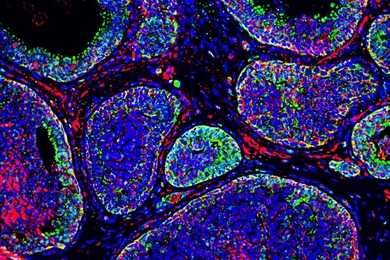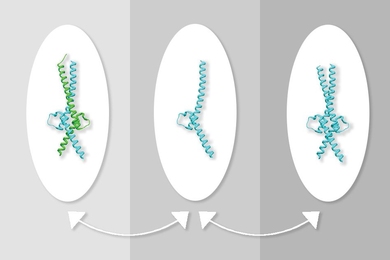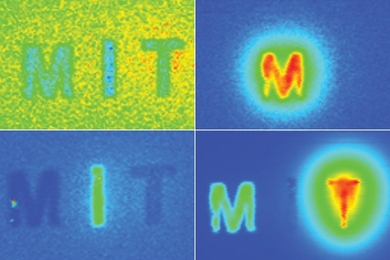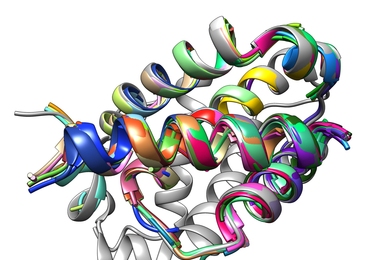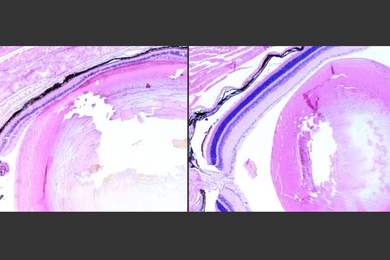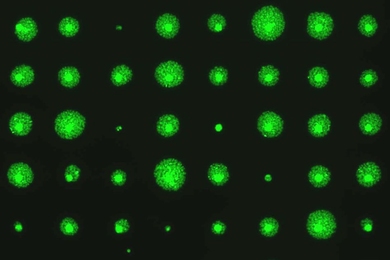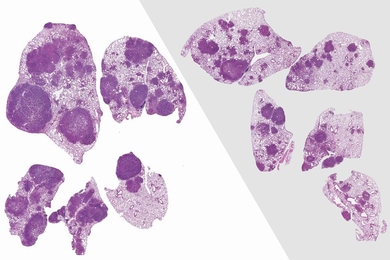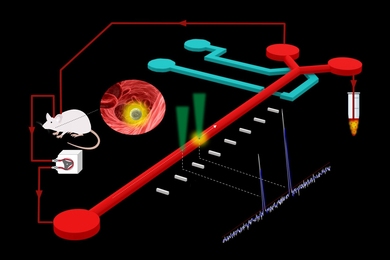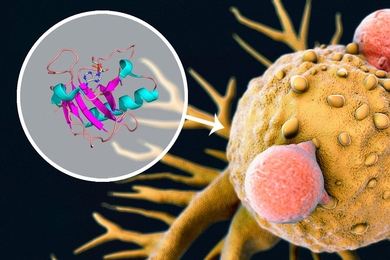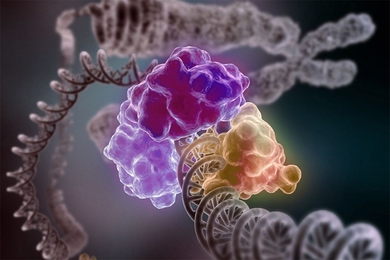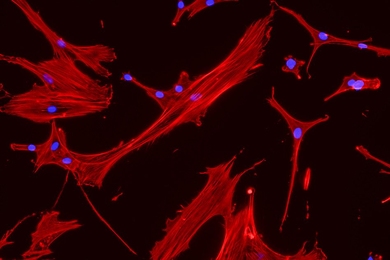Using machine learning for medical solutions
Master’s student and Marshall Scholar Kyle Swanson uses computer science to help make drug development more efficient.
A new approach to drugging a difficult cancer target
Study suggests an alternative way to treat tumors that are dependent on the cancer-promoting Myc protein.
New optical imaging system could be deployed to find tiny tumors
Near-infrared technology pinpoints fluorescent probes deep within living tissue; may be used to detect cancer earlier.
Predicting sequence from structure
Researchers have devised a faster, more efficient way to design custom peptides and perturb protein-protein interactions.
Why too much DNA repair can injure tissue
Overactive repair system promotes cell death following DNA damage by certain toxins, study shows.
A better way to measure cell survival
New test rapidly evaluates the effect of drugs and potentially toxic compounds on cells.
Bacteria promote lung tumor development, study suggests
Antibiotics or anti-inflammatory drugs may help combat lung cancer.
From microfluidics to metastasis
New platform enables longitudinal studies of circulating tumor cells in mouse models of cancer.
To guide cancer therapy, device quickly tests drugs on tumor tissue
Inexpensive 3-D-printed microfluidics device could be used to personalize cancer treatment.
New drug combination could be more effective against melanoma
Chemists discover an unexpected synergy between two types of cancer drugs.
The long and short of CDK12
A new study linking RNA processing to DNA repair may open new avenues to cancer therapy.
Measuring cancer cell “fitness” reveals drug susceptibility
Together, cell growth rate and gene expression shed light on why some tumor cells survive treatment.
Exploring unknowns in cancer, the human brain, and the road ahead
Double major Kerrie Greene builds connections in her research and her community.
Helping blood cells regenerate after radiation therapy
Method boosts differentiation of stem cells into mature blood cell types, may help leukemia and lymphoma patients.
